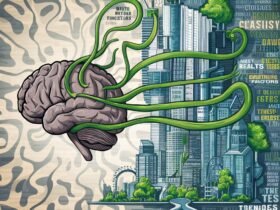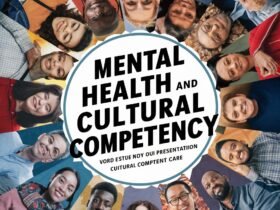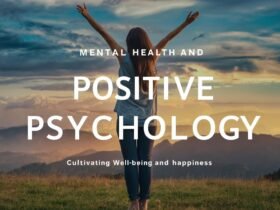Postpartum Depression: Recognizing and Overcoming the Challenges
Hey there, young friends. Today, we’re going to talk about a topic that might be a little unfamiliar to you, but it’s really important – postpartum depression.
Now, I know what you might be thinking – “What’s postpartum depression? Isn’t having a baby supposed to be a happy time?” And you’re right, welcoming a new baby into the world is usually a time of joy and excitement.
But for some new moms, it can also be a time of sadness, anxiety, and overwhelming emotions. And that’s what we call postpartum depression.
First of all, let’s break down what that big word means. “Postpartum” means the time after a baby is born, and “depression” is a mental health condition that causes feelings of sadness, hopelessness, and loss of interest in things you usually enjoy.
So, postpartum depression is a type of depression that can happen to new moms in the weeks and months after giving birth.
What Causes Postpartum Depression?
You might be wondering, why do some new moms get postpartum depression? Well, there are a few different reasons.
Hormonal changes
When a woman is pregnant, her body goes through a lot of changes. One of those changes is a big increase in hormones like estrogen and progesterone.
After the baby is born, those hormone levels drop suddenly, which can cause changes in mood and emotions. For some women, this hormonal shift can contribute to postpartum depression.
Lack of sleep
Taking care of a new baby is a lot of work, and it can be really tiring. New moms often have to wake up several times a night to feed and comfort their baby, which can lead to a serious lack of sleep.
When you’re not getting enough sleep, it can make it harder to cope with stress and regulate your emotions. This can also contribute to postpartum depression.
Stress and overwhelming emotions
Becoming a parent is a big life change, and it can be really overwhelming at times. New moms might worry about things like whether they’re doing a good job taking care of their baby, how they’ll manage all the new responsibilities, or how their relationships might change.
All of this stress and pressure can take a toll on mental health and contribute to postpartum depression.
History of depression or anxiety
Women who have struggled with depression or anxiety in the past are also more likely to experience postpartum depression. This is because mental health conditions can make it harder to cope with the challenges and changes of new motherhood.
Recognizing the Signs of Postpartum Depression
So, how can you tell if a new mom might be struggling with postpartum depression? Here are some common signs and symptoms to look out for:
- Feeling sad, hopeless, or overwhelmed most of the time
- Losing interest in things you usually enjoy
- Having trouble bonding with the baby or feeling disconnected from the baby
- Feeling guilty, worthless, or like a bad mom
- Having trouble sleeping (even when the baby is sleeping) or sleeping too much
- Eating too much or too little
- Having trouble concentrating or making decisions
- Feeling restless, irritable, or angry
- Having thoughts of harming yourself or the baby
If a new mom is experiencing several of these symptoms for more than a couple of weeks, it’s important to reach out for help. Postpartum depression is a real medical condition that requires treatment and support.
Overcoming Postpartum Depression
The good news is, postpartum depression is treatable, and there are lots of ways to manage the symptoms and start feeling better. Here are some strategies that can help:
Talk to a healthcare provider
The first step in getting help for postpartum depression is talking to a doctor or mental health professional. They can assess your symptoms, provide a diagnosis, and recommend the best course of treatment.

Treatment options might include:
- Therapy or counseling to work through difficult emotions and learn coping strategies
- Medication, like antidepressants, to help regulate mood and reduce symptoms
- Support groups or group therapy to connect with other new moms and share experiences
Reach out for support
Having a strong support system is so important for new moms, especially those struggling with postpartum depression. Reach out to family, friends, or other trusted people in your life and let them know how you’re feeling.
Ask for help with things like cooking, cleaning, or watching the baby so you can take a break and focus on self-care. And don’t be afraid to accept help when it’s offered – people who care about you want to support you during this challenging time.
Practice self-care
Taking care of yourself is crucial for managing postpartum depression. This might include things like:
- Getting as much rest as possible (nap when the baby naps!)
- Eating a healthy, balanced diet
- Getting some gentle exercise, like a walk around the block or a postnatal yoga class
- Taking time for activities you enjoy, like reading, taking a bath, or listening to music
- Practicing relaxation techniques, like deep breathing or meditation
Challenge negative thoughts
Postpartum depression can cause a lot of negative, self-critical thoughts, like “I’m a terrible mom” or “I’ll never feel better.” It’s important to recognize these thoughts and try to challenge them with more realistic, positive ones.
For example, instead of thinking “I’m a terrible mom,” try reframing it as “I’m doing the best I can, and that’s enough.” Or instead of “I’ll never feel better,” try “This is temporary, and with help and support, I will start to feel like myself again.”
Find ways to bond with the baby
Postpartum depression can make it hard to feel connected to the baby, but there are ways to encourage bonding and attachment. This might include:
- Skin-to-skin contact (holding the baby against your bare chest)
- Making eye contact and talking or singing to the baby
- Responding to the baby’s cues and needs
- Playing simple games or doing activities together, like reading or going for a walk
Remember, bonding is a process, and it’s okay if it takes time. The most important thing is showing up and being present with your baby in whatever way feels manageable.
Be patient and kind to yourself
Recovering from postpartum depression is a journey, and it’s important to be patient and kind to yourself along the way. Celebrate the small victories and progress you make, and don’t beat yourself up if you have a bad day or experience setbacks.
Remember, you are not alone, and you are doing the best you can. With time, support, and treatment, you will start to feel more like yourself again.
When to Seek Emergency Help
While postpartum depression is common and treatable, there are some situations where it’s important to seek emergency help right away.
If a new mom is experiencing any of the following, it’s crucial to call a doctor, mental health professional, or emergency services immediately:
- Thoughts of harming herself or the baby
- Hallucinations (seeing or hearing things that aren’t there)
- Delusions (believing things that aren’t true)
- Severe confusion or disorientation
- Inability to care for herself or the baby
These symptoms can be signs of a more severe condition called postpartum psychosis, which requires immediate medical attention.
Putting It All Together
Wow, we covered a lot today! I know this topic might feel a little heavy or scary, but I hope you’re feeling more informed and empowered to support the new moms in your life.
Remember, postpartum depression is a real and serious condition that affects many new moms. It’s not a sign of weakness or a personal failure – it’s a medical condition that requires treatment and support.
If you know a new mom who seems to be struggling, the best thing you can do is offer your love, support, and encouragement. Let her know that she’s not alone, and that help is available.
And if you’re a new mom reading this and you’re struggling with postpartum depression, please know that you are not alone, and that you deserve to feel better. Reach out for help, take care of yourself, and hold onto hope – with time and support, you will get through this.













Leave a Reply